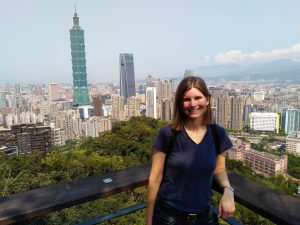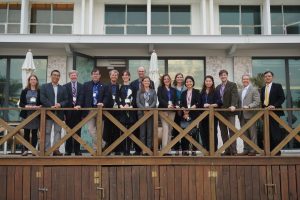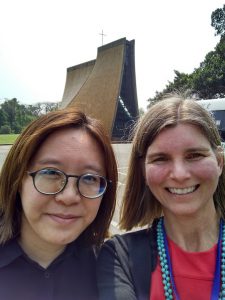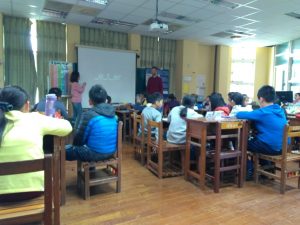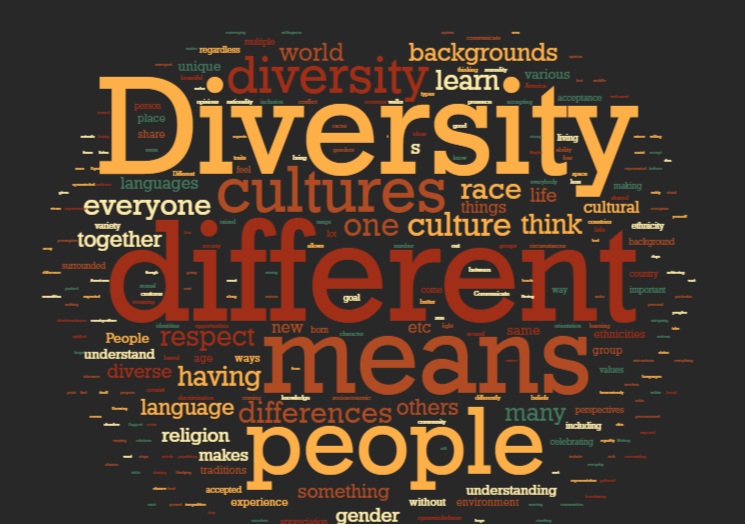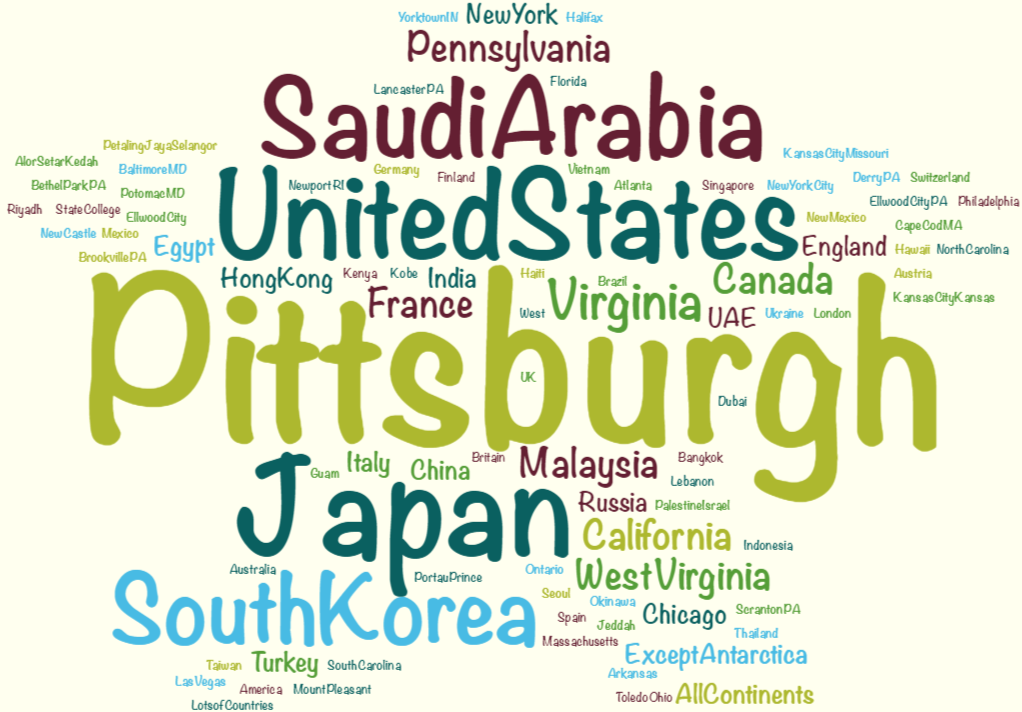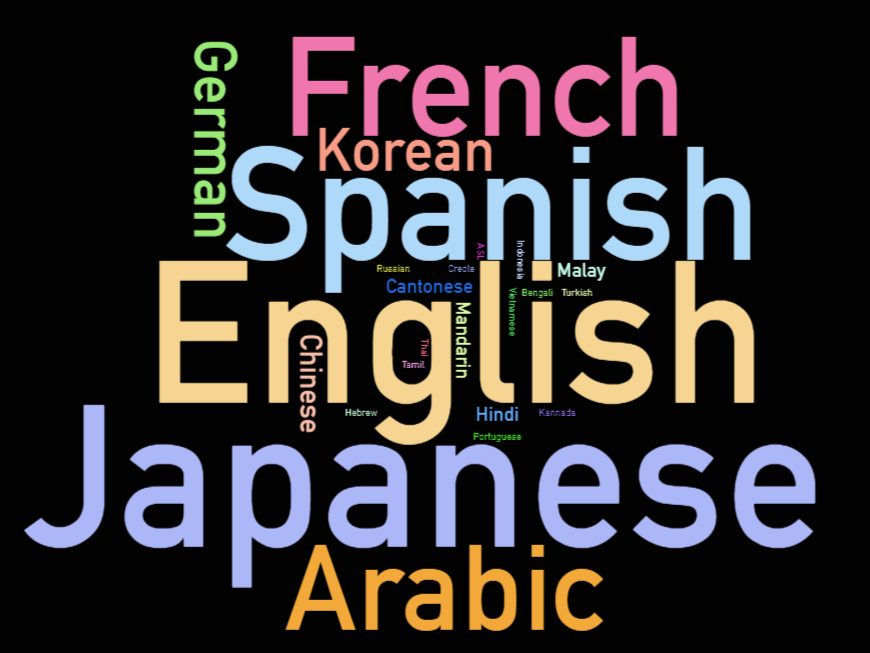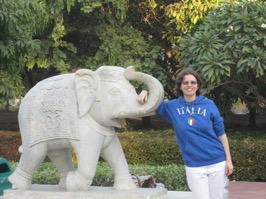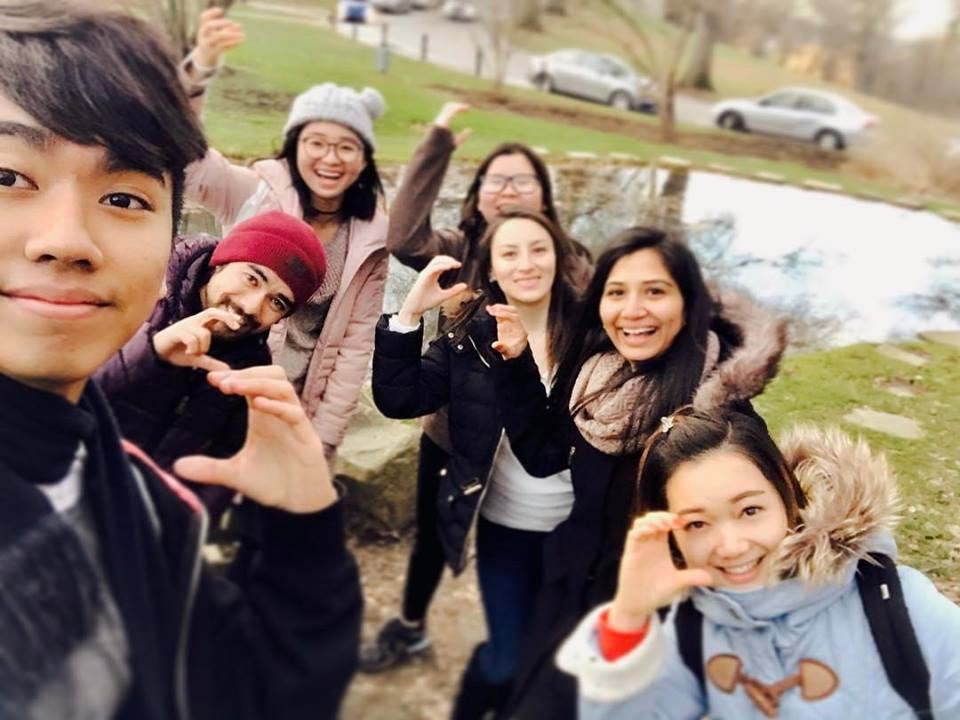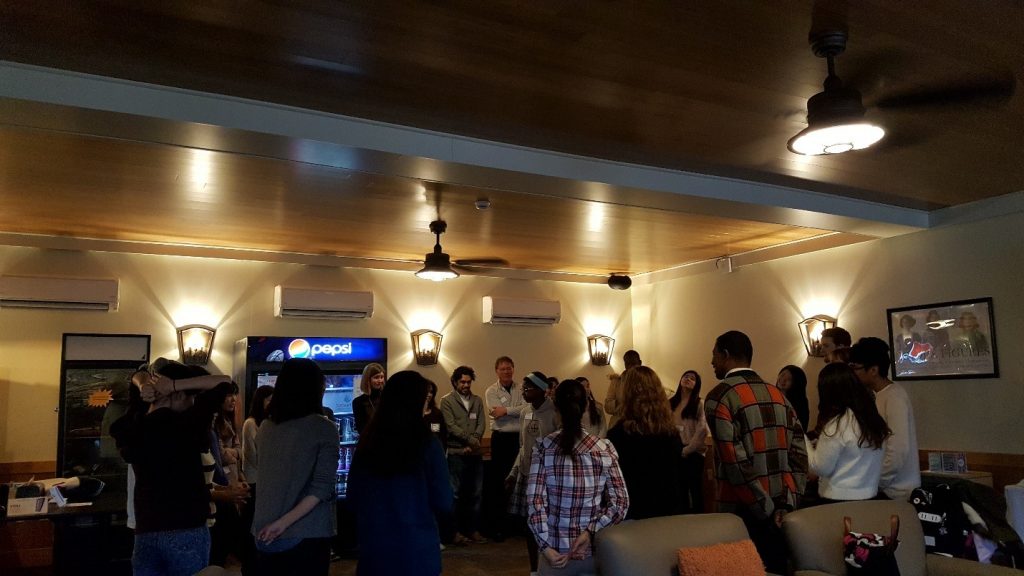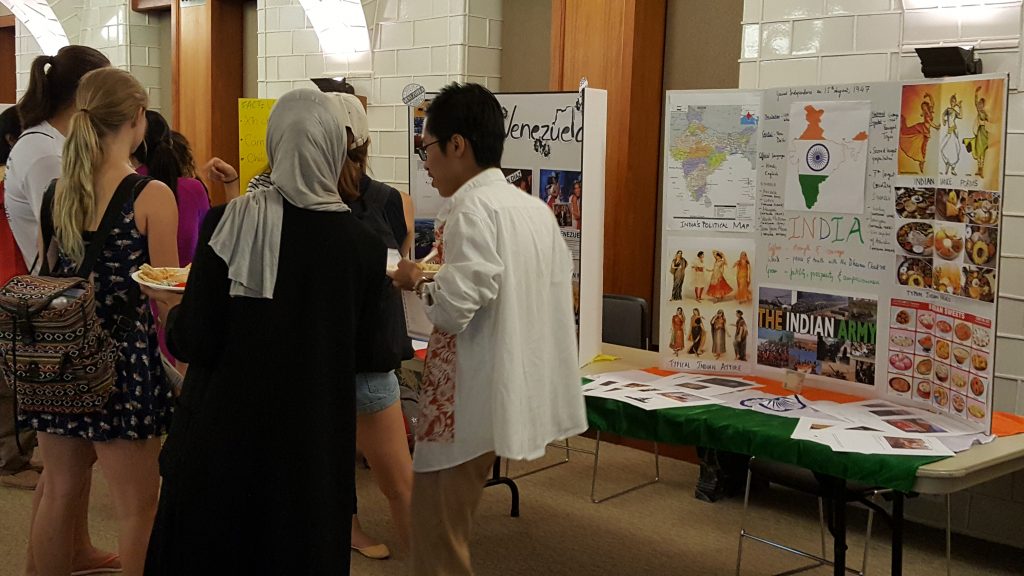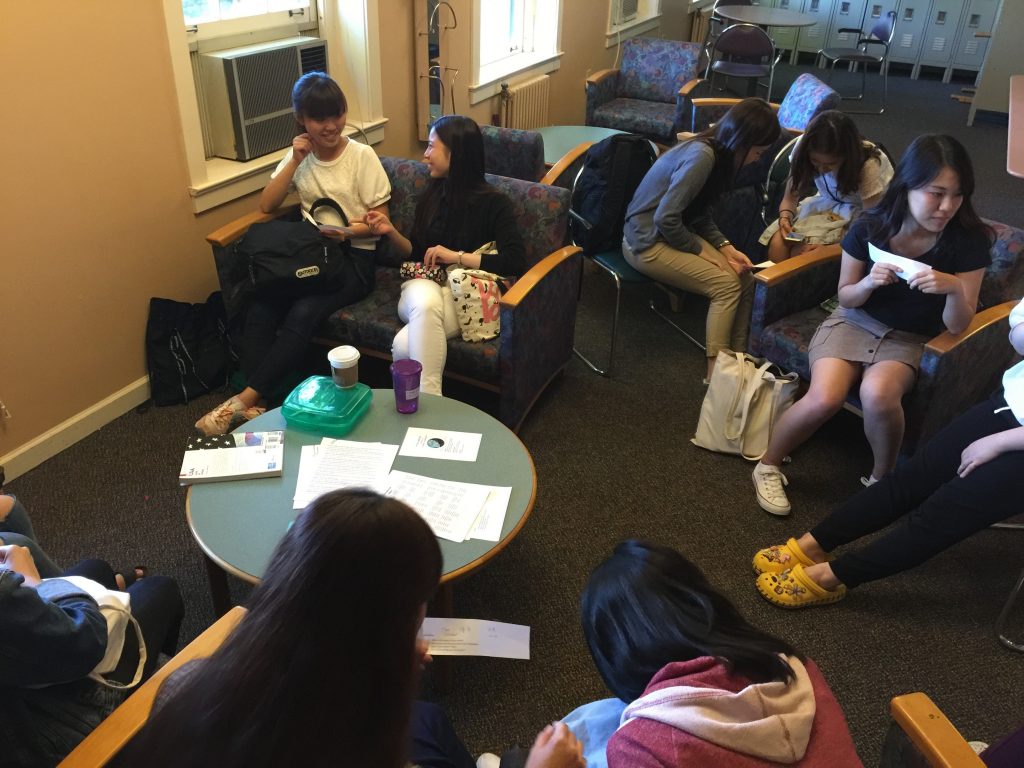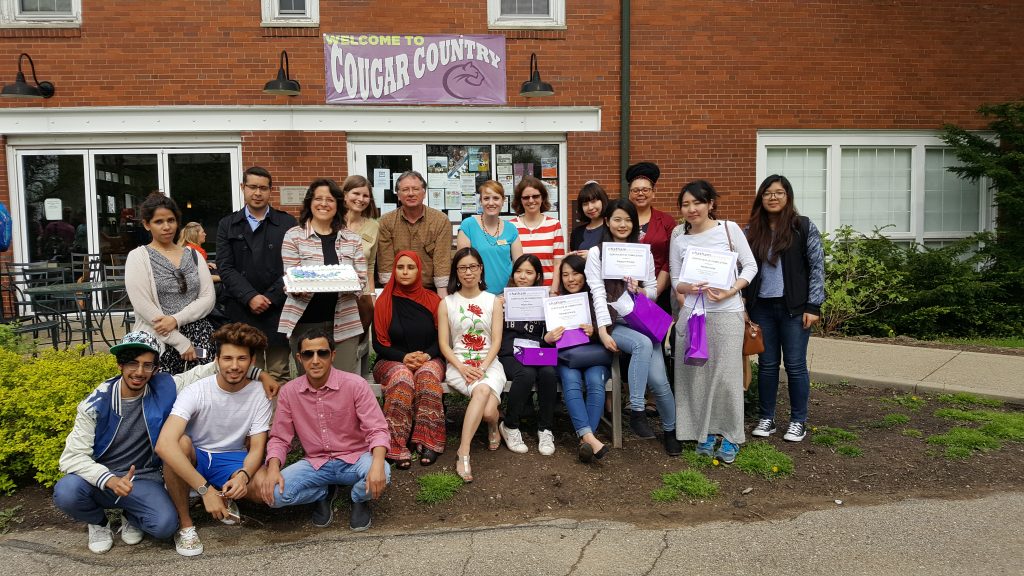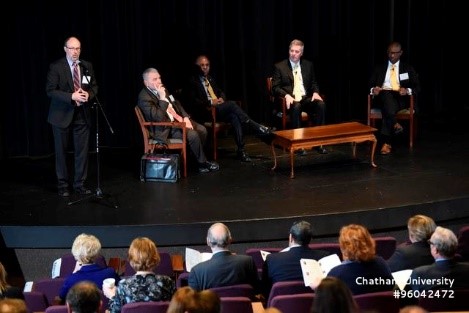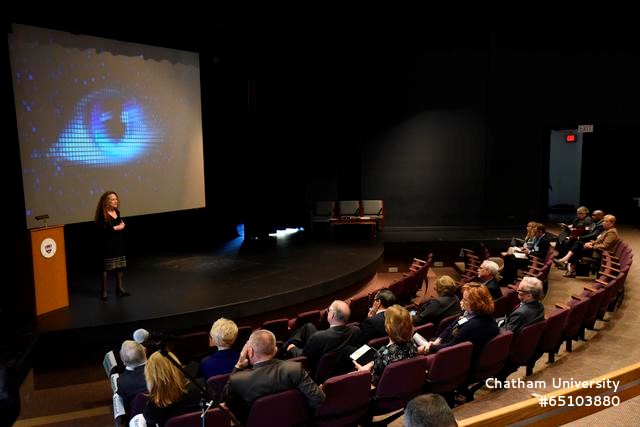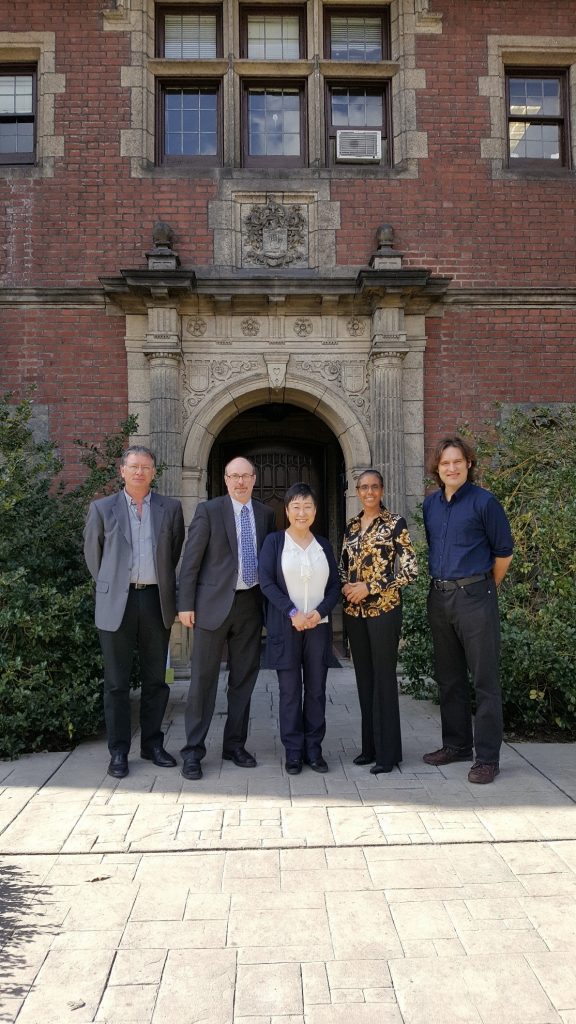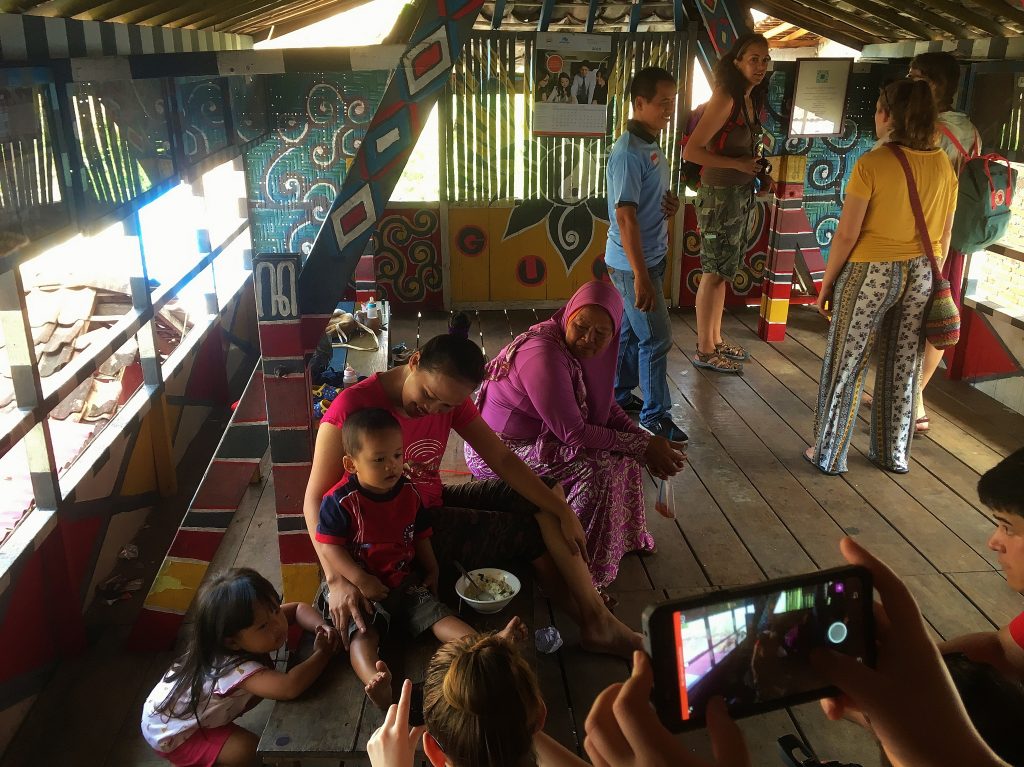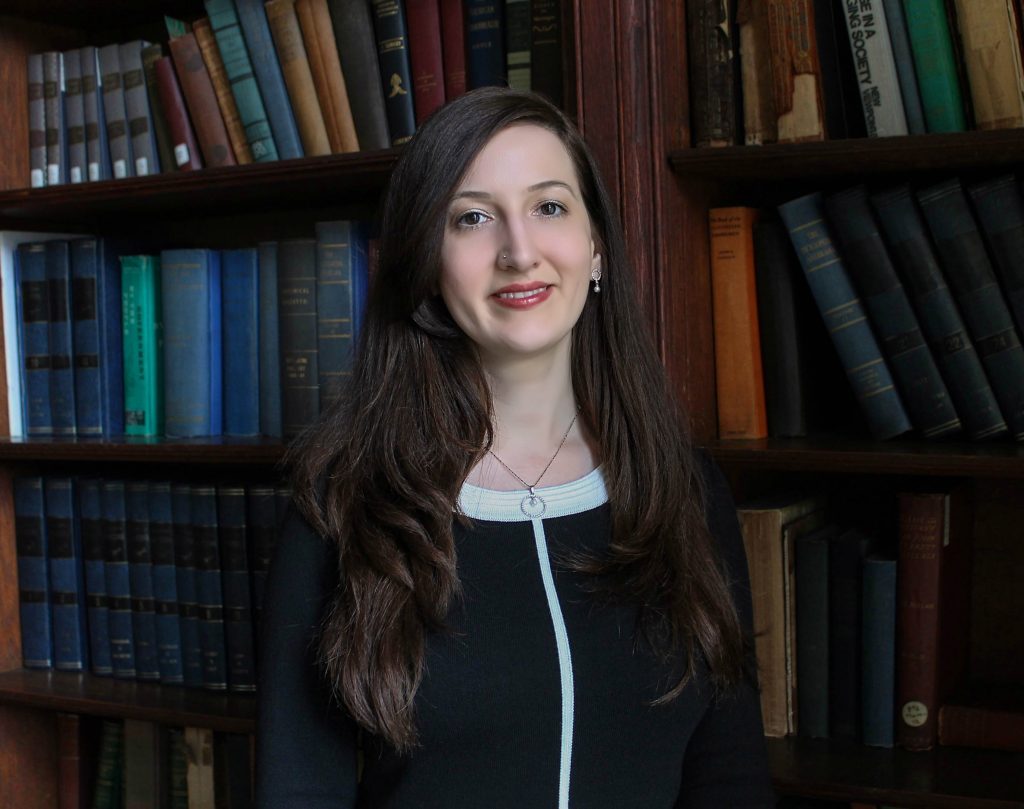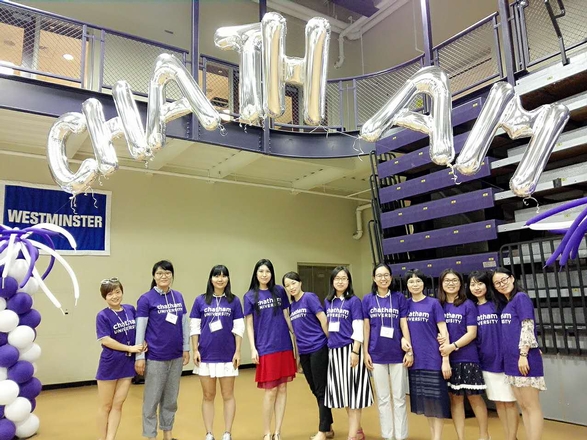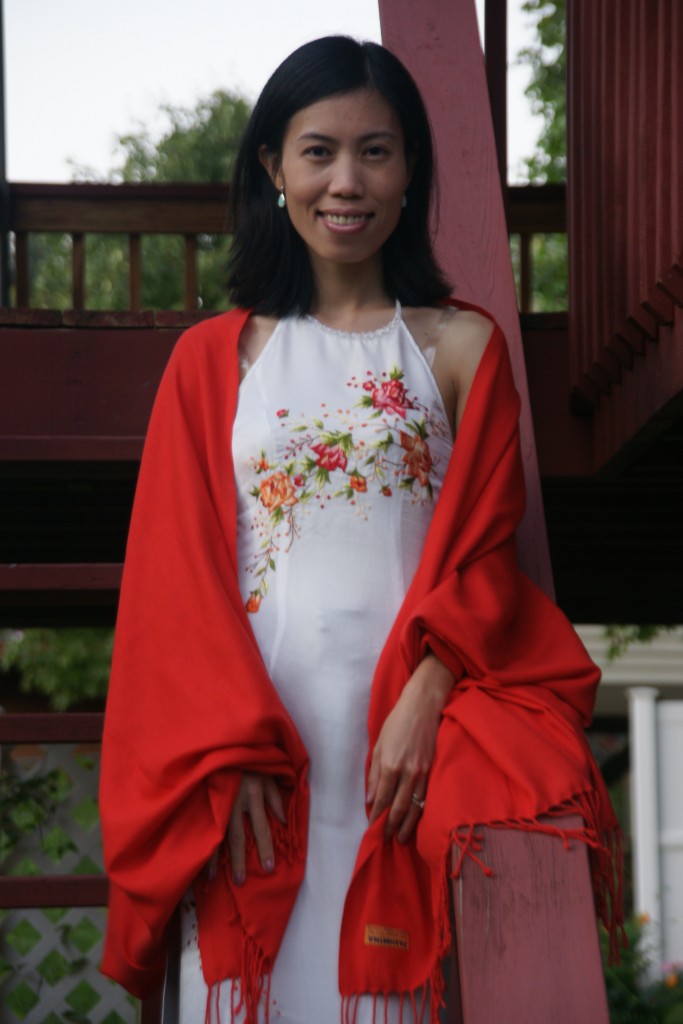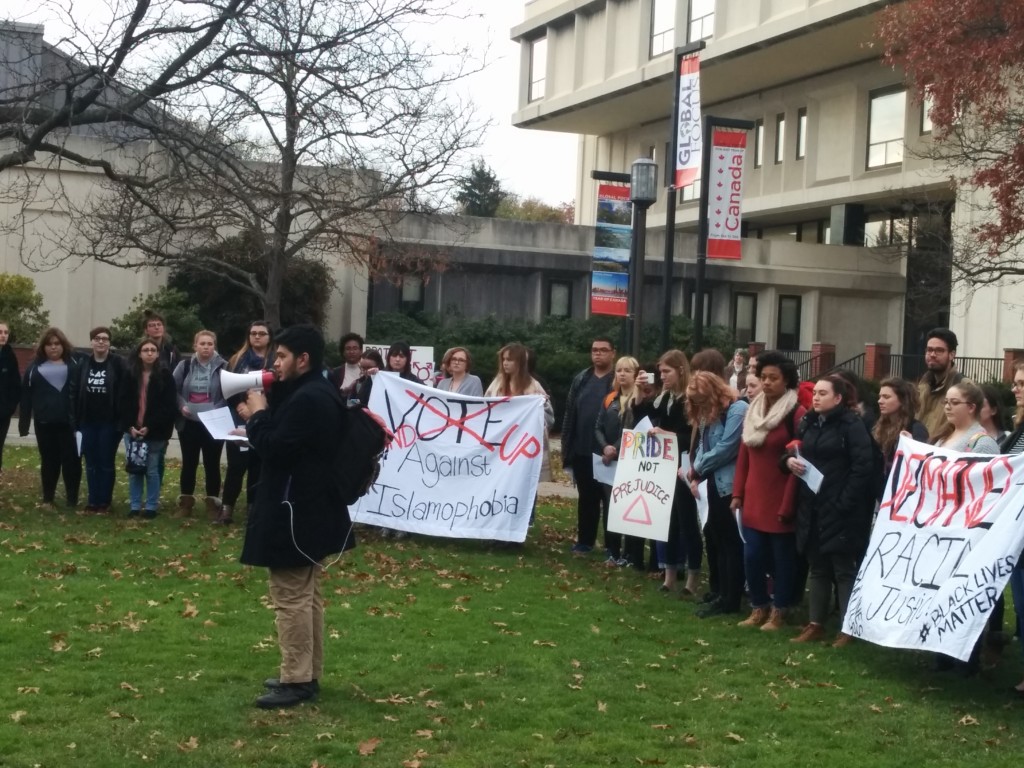| Name |
Major/Position |
Places |
Languages |
What diversity means |
| Abdelaziz Bagabas |
Geomatics |
Saudi Arabia, Egypt, England, and Indonesia |
Arabic, English |
“Diversity means respect and learn culture disparately around the world.” |
| Abduleh Al Ghanmi |
ELP |
Saudi Arabia, US |
Arabic, English |
“It means to me learning something new from different people or culture. It means to me how I can improve myself.” |
| Abdullah Almatairi |
Electricity Technician |
Riyadh, US |
Arabic, English |
“I have one language which is the language Arabic. I visit the USA because I study language English.” |
| Ahmir Allen |
Creative Writing/Film |
Pittsburgh |
English, Spanish, Japanese |
“Diversity is about open-mindedness and inclusivity. In a diverse environment people can feel accepted without a fear that someone will view them as “less than” or understanding of their basic human rights.” |
| Alex Ferrer |
Policy Studies, Graphic Design |
Las Vegas |
English, Spanish, German |
“Diversity to me is the acceptance of different cultures in a community. Once this happens, people expose themselves to different lifestyle and become more diverse.” |
| Allison Love |
Human Biology |
Pittsburgh |
English |
“Diversity is being able to bring people together from different backgrounds or cultures. Realizing the differences between others and accepting them and celebrating them.” |
| Ameerah Almarawani |
ELP |
Saudi Arabia, US |
English, Arabic |
“Identify the cultures of society. Communicate with new friends. Communicate with my family. Gain language.” |
| Arief Zulkifli |
International Studies |
Malaysia, U.S., Dubai |
English, Malay |
Diversity means the presence of various things. In a general context, I would associate diversity with the inclusion of many people from various backgrounds/ genders. However, diversity could simply be the range of something. |
| Asami Nabeshima |
English Literature/ Junior |
Japan |
Japanese, English |
“I think diversity is to have to do something with people who have different culture, so we should understand and respect other culture each other.” |
| Bholika Kothiya |
Healthcare Administration/ ELP |
India |
Hindi, English |
“Diversity means variety. It is understanding between two cultures.” |
| Brian Harr |
Biochemistry |
Derry, PA |
English |
“Diversity literally means having variety. To me, diversity means being accepted in each aspect, regardless of how much it may differ from others.” |
| Chris Musick |
AVP, Office of International Affairs |
Yorktown, IN |
English, Japanese |
“The beautiful differences in thought, perception, and worldview gathered in one place working toward a common goal without conflict.” |
| Christine Emerick |
Counseling Psychology |
Halifax, PA. Traveled to many different states, including Arkansas, North Carolina, and Massachusetts. |
English |
“Diversity means various people with different backgrounds coexisting in an area. Diversity also allows for conversations to be had between different people and allows us to learn something new, if we are willing to learn.” |
| Chika Kitagishi |
English Literature |
Japan, South Korea, Taiwan, Australia, Singapore, Hong Kong |
Chinese, Korean, Japanese, English |
“It is something broadening any perspectives.”
|
| Curran O’Neill |
Media Arts |
Pittsburgh |
English, (some) Japanese |
“Diversity is a vast number of people from different races/ ethnicities/ sexualities/ genders/ classes/ etc. A group of people that don’t all share the same character traits.” |
| Cymon Butler |
Graphic Design |
U.S. |
English, Spanish, Japanese, French, German |
“What diversity means to me is multiple groups of people converging together, with none in particular standing out. There are different ways of thinking and backgrounds, but everybody is accepting of one another.” |
| Daria Montgomery |
Psychology |
Russia, Chicago, Pittsburgh |
English, French |
“Being diverse, to me, means having people of all walks of life having an equal chance to be heard and respected. We all come from different places, were born into different circumstances, were raised different ways, and so should take that to find a middle ground that we can all stand on.” |
| Darlen Motley |
Dean, School of Arts, Science and Business |
PA, NY, Chicago, Atlanta, VA, visited all continents except Antarctica |
English, Basic Spanish |
“Diversity and inclusion means respect and appreciation of values and culture of all peoples.” |
| Ding-Wei Linh |
Chatham Semester |
Taiwan, Japan, Singapore, Hong Kong, Macau, U.S., Canada |
Chinese, English |
“We don’t want to be the same, but we want to understand each other.” |
| Dori Cawley |
Media Arts |
Newport, RI, USA |
English, Japanese (learning now), Spanish, can read Hebrew |
“Diversity means that you are surrounded by people of different ethnicities and cultures. It also means that you want to better your understanding of the world.” |
| Duncan Eisen-Slade |
Sustainability |
Born-Scranton, PA; raised-Mt. Pleasant, SC; Living-Pittsburgh, PA |
English |
“An environment of rich cultural expressions and a variety of opportunities and communities. Not living in a mirror chamber. An environment of many different types of people.” |
| Elena Woodworth |
Sustainability |
Pittsburgh, PA |
English |
“Diversity means having a group with all different people of race, socio-economic status, religion, sexuality, gender, language, cultural background, and any other differences. It means having those differences, but having respect and appreciation for those who are different from you. It also means wanting know and understand those differences.” |
| Erika Nankawa |
Bioscience (in Japan) and ELP (in the U.S.) |
Japan |
Japanese, English |
“I think that different food from country to another is diversity. I think that different color of skin is diversity. I think that different education system and different languages is diversity. “ |
| Faisal |
Information Management Systems |
Saudi Arabia, USA, UK, UAE |
Arabic, English |
“Different cultures, opinions, and perspectives coming together.” |
| Fernando Soriano |
Biology-Environmental Science |
The United States of America |
English (primary, fluent); Spanish (secondary, roughly fluent) |
“Diversity is a pre-emptive step to achieving a larger goal: equality. Diversity itself means nothing if no constructive steps are taken to assist the needs and inequalities of non-dominant identities/classes.” |
| Gregory Galford |
Educator, Architect |
Grew up in rural West Virginia. Lived in Philadelphia, London, New York City. Have visited every continent except Antarctica. Bucket list. |
Can read road signs and menus in 3-4 languages |
“Diversity means willingness to listen and learn from those who live and think differently.”
|
| Hana |
Education Techniques |
Saudi Arabia-Jeddah. Immigrates UAE |
Arabic, Indonesia, English. |
|
| Hannah Hutton |
Undecided |
Bethel Park, PA |
English, Spanish |
“The presence and acceptance of those who are from different backgrounds and cultures. It can also be the incorporation of various traditions from those cultures in everyday life.” |
| Hasnah Alghamdi |
History |
|
Arabic, English |
“Languages, cultures, personal, customs and traditions” |
| Heather Sekeres |
Biology & Sustainability |
Brookville, Pennsylvania |
English, some German, and some Spanish |
“Support and acceptance of people from all walks of life. Each person is valuable and without any one of us the world would be a little less beautiful.” |
| HongChing Cheung |
Accounting |
Hong Kong, Pittsburgh |
Cantonese, English, Japanese |
“Diversity means being in an environment surrounded by a large range of people that may include people from different countries, race, age, gender. Diversity involves with interactions and relations with others who are different.” |
| Hyemi |
Economics |
Korea |
Korean, English |
“There are many kinds of diversity such as age, gender, religion, ethnicity, and race, etc. Studying in America, these days. I think about race diversity more. People have to recognize and respect the diversity, but there is still some discrimination based on race.” |
| Jade Miley |
Sustainability |
Born in China. Grew up in US |
English, a little bit of Mandarin |
“Knowing what life and cultures are like to people in other countries and/or cultures. Being aware of what is going on in the world other than just your own country/culture.”
|
| Jake Reed |
Criminology |
Ontario, Canada |
English and French |
“Diversity means having different people all from a different backgrounds. It means having a group of people where not one person is the same as the next.” |
| Jake Rideaw |
Communications |
Potomac, MD |
English and French |
“Having people of different backgrounds coming together to coexist harmoniously in society, regardless of gender, race, and religion. People are able to come together to form strong bonds with one another.” |
| Johnny Artinger |
Exercise Science |
Pittsburgh |
English |
“Diversity is what makes everyone different from one another. We all come from diverse backgrounds making us different in our own unique way.” |
| Jordan Annarumo |
Human Biology |
Ellwood City, PA |
English |
“Diversity is when our population is represented by more than just Americans. To be diverse you embrace cultures and customs from other nations.” |
| Justin McCloskey |
Sustainability |
California, Pennsylvania |
English, Japanese |
“Diversity to me means the mixing of different cultural traits and aspects into one purpose or event.” |
| Juyeon Shim |
English Language and Literature |
S. Korea |
Korean, English |
“(Maybe) in cultural way, because of the diversity, I can learn many culture at once and experience others. Diversity is good to get along with others and experience many things than I expected.” |
| Karun Lelahuta |
English Language Program |
Thailand, Bangkok |
Thai, Japanese, English |
“The people from different background, such as culture, country, language, etc. Live in the same place and shared their experience together.” |
| Kazuki Tarumi |
English Literature/ Chatham Semester |
Osaka, Japan |
Japanese, English, Chinese |
“People from different countries come together.” |
| Kelsey Calamaro |
Human Biology |
Florida |
English |
“Diversity has a common meaning to me, it means different. This is not something bad, even though some people may make it seem that way. Diversity is intriguing, new and educating because you never know what you might learn from an entity that is diverse.” |
| Kimara Bernard |
Architecture |
Port-au-Prince, Haiti. Been to a lot of countries besides the United States |
French, English, Creole, Spanish |
“To me, there is a lot of meaning for Diversity. The fact that we all have different beliefs, languages, ethnicity, that we have our own culture .And all that makes us ourselves makes us diverse.” |
| Kiyo Irie |
Environmental Bioscience/ Junior |
Japan |
Japanese, English |
“Diversity is learning other cultures and; languages to me. I think the goal of diversity is understanding each culture.” |
| Kylie Fletcher |
Cultural Studies/ Graphic Design |
Born in West Virginia, US. Grew up in Okinawa, Japan and New Mexico, US. |
English, Japanese, French |
“To me, having diversity means having a space with a number of different identities and cultures (race, ability, gender, sexual orientation, ethnicity, etc.) that co-exist with one another. Diversity should be met with respect for other cultures.” |
| Laramie Ball |
Psychology |
New York State, USA |
A little bit of Spanish and Japanese |
“Equal respect and representation for all people regardless of who they are, where they are from, and what they believe. A celebration of these differences, and that these differences are not pushed down, but uplifted.” |
| Linh Phung |
Director, English Language and Pathway Programs |
Vietnam, State College, Pittsburgh. Visited Brazil, Canada, and Malaysia |
English, Vietnamese, Basic French. Learned some Spanish. Learning Chinese |
We were born with different characteristics and into different circumstances, resulting in different experiences and opportunities in life. Understanding differences also means understanding shared humanity. |
| Liz Peace |
Psychology |
Pittsburgh |
English, Japanese |
“Diversity means celebrating everyone’s differences. By understanding what makes everyone unique and being open-minded, we can all learn a lot.” |
| Liz Romano |
Music |
Cape Cod, Massachusetts |
English and French |
“Diversity is being different, but is also celebrating these differences.” |
| Maha Al Humaidi |
ELP Student |
Saudi Arabia |
Arabic, English |
“Diversity means for my knowledge and learn new language. I can communicate with another person.” |
| Maha Aloufi |
ELP |
Saudi Arabia, Lebanon, Turkey, Egypt, Britain, America, France |
Arabic, English, beginner French |
“More diversity, I see, the more happy I feel. People from all around the world share different culture with each other.” |
| Marina Razgarina |
ELP Lecturer |
Grew up in Russia. Visited Turkey, England, France, Ukraine, and Canada |
Russian, English, Turkish (Int), French (low int) |
“It means appreciation for other cultures, religion, traditions. It means sharing what’s good about our cultural identities. It means tolerance and open-mindedness. It means losing preconceived notions about other cultures.” |
| Marissa Wightman |
Human Biology |
California |
English |
“Diversity means to have varying qualities within oneself and others. I think diversity also means to be unique.” |
| Megan Simda |
Early Education |
Virginia, West Virginia, and Ellwood City |
English and learning French |
“Diversity means living in a world where everybody is able to bring something different to the table. Because everyone’s unique cultural background and attributes. Diversity makes the world a better place for everyone.” |
| Meier Parr |
Exercise Science |
Pittsburgh, Pennsylvania |
English |
“Diversity means being a part of, and appreciating, multiple cultures.” |
| Mina Hogsett |
ELP Teacher |
From West Virginia, US, Lived in Palestine/ Israel, Finland, South Korea, and Kenya. Visited 29 countries total. |
English, Arabic |
“To me, diversity is when different people, perspectives and emergent ideas may share a space together where listening, respect and curiosity overshadow fear and conflict” |
| Mitra |
MBA/ ELP |
Iran |
Farsi/ Persian, English |
“Diversity is defined as differences. For me, it means variation between people and society. We can see a lot of diversity in the U.S., which is amazing.” |
| Monica Snyder |
International Studies (focus in Latin America) and Policy Studies |
Pittsburgh |
Portuguese, English, French (intermediate), Spanish |
“Diversity to me means including everyone. Making others feel welcomed at all times is also very important.” |
| Nagisa Fujimoto |
Chatham Semester |
Japan |
Japanese, English |
“Diversity means various ideas and cultures in each country and acknowledging them.” |
| Naomi Saenz |
Chemistry |
Pittsburgh. Grew up in Mexico |
English, Spanish, and some French |
“Different ethnicities, race, languages, and cultures living in the same community.” |
| Natsuki Sakagami |
English Literature/ Chatham Semester |
Japan |
Japanese, Chinese, English |
“To know new things and accept them.” |
| Nayu Hattori |
International Studies |
Kobe, Japan. Been to Hawaii, Guam, California |
Japanese, English |
“Diversity for me: People respect everyone, and accept everyone no matter their age, the gender, the place raised or born, the nationality and any other things.” |
| Noriko Sasaki |
English Literature/ Chatham Semester |
Japan |
Japanese, English, a little German |
“Everyone has a right to live freely. Everyone should not be limited about anything.” |
| Rumi Horibe |
English Literature/ Chatham Semester |
Japan |
Japanese, English |
“Japan, America, ect.” |
| Sabrina Cheng |
Undecided |
Pittsburgh |
Mandarin Chinese, Cantonese Chinese, English and currently learning Japanese |
“Diversity is surrounding yourself with many different types of people. Diversity covers religion, opinion, sexuality, nationality, age, etc. and it’s important for everyone to be exposed to different point of views.” |
| Seina Maeda |
English |
Japan |
Japanese, English |
“It means that people and animals which exist in this world have difference. Everyone and everything is not the same.” |
| Shashanka Hassan |
Exercise Science |
India |
English, Hindi, Tamil, Kannada, Japanese |
“Diversity is one of the many important things I think a country should have. Diversity gives us an opportunity to learn and experience new things making us get more out of life.” |
| Sierra McCullough |
Psychology |
New Castle |
English/Spanish |
“Diversity is a broad array of cultures accepted as one. We need diversity to understand the many ways of life.” |
| Sierra Spraker |
History/Education |
Baltimore, MD |
English, Spanish, German |
“Diversity to me is allowing different people or things to be intermingled. Diversity is not only by race, but all other characteristics.” |
| Siyeon An |
Communication |
S. Korea |
Korean, English |
“Something that’s not fully attained even in America.” |
| Soumayani Ghoshal |
Journalism/ Junior |
India. Visited Germany, Austria, Italy and Switzerland |
Hindi, Bengali, English |
“Diversity is an amalgamation of cultures, traditions, cuisines, values, and beliefs. It brings together people from different races, ethnicities, and cultures and portrays unity in differences.” |
| Sueng a Park |
Fine Art |
Seoul, S. Korea |
English, Korean |
“People have different cultures, which is they use different languages and lifestyles. It’s a little hard to understand but it is really interesting.” |
| Sydney Steven |
Biochemistry |
Pittsburgh |
English |
“Diversity is the variety in a group, it may be people or objects. It is what makes people unique and who they are.” |
| Sylvia Shipp |
Student Advisor/ ESL Lecturer |
Lived in 40-45 different places (20 cities) in the U.S and 2 countries overseas. Visited 40 cities abroad. |
English, Spanish, German, Arabic |
“Inclusion of many different groups with regard to race, religion, gender sexual orientation, socio-economic level, etc.”
|
| Tae Matsuo |
ELP |
Japan |
Japanese and English |
“It means that everyone can communicate with others who have different personality (like religion, language, race) without bias and discrimination, with full of respect and smile :).” |
| Tarah Dunn |
ELP Lecturer |
Pittsburgh. Been to France, Italy, Spain, and Japan |
English, ASL, French |
“Diversity is infinite light that radiates a warmth to be felt each day.” |
| Trevor MacKenzie |
Mathematics |
Lancaster, PA |
English, German |
“Diversity is including people from various backgrounds and opinions. It’s about hearing multiple viewpoints and making sure no one is removed based on their character or characteristics.” |
| Victoria Vernail |
Biology |
Virginia |
English |
“Diversity means being surrounded by people that think differently and see the world in a different light. It is the ability to look at a situation from another perspective and share a multitude of ideas.” |
| Yazeed Feizo |
American Flights Academy |
I grew up in Saudi Arabia and I visited the United States. |
Arabic, English |
“Improvement and knowledge of languages”
|
| Yeongbin Byeon |
Visual Arts |
S. Korea |
Korean, English |
Diversity means understand different cultures.” |
| Yue Gao |
ELP |
China |
Chinese, English |
“Good thing is we can learn a lot of culture, but sometimes I’m in the culture shock.” |
| Yundian Ying |
ELP |
China |
Chinese, English |
“Different kinds of experiences, backgrounds. I love to know lots of people who have various thoughts. That’s really broaden my horizon.” |
| Yuri Morii |
English Literature |
Japan |
Japanese, English |
“It is given us some ways of thinking.” |
| Yuri Mukai |
Linguistics/ Chatham Semester |
Japan |
Japanese, English |
“Diversity is the idea that various races and genders should be included and play an active part in a social community.” |
| Zauyah Waite |
Vice President for Student Affairs and Dean of Students, Office of Student Affairs |
Lived in Alor Setar-Kedah; Petaling Jaya-Selangor; Malaysia; Kansas City-Missouri; Kansas City-Kansas; Toledo-Ohio; Pittsburgh-Pennsylvania |
Malay and English |
“For me, diversity means welcoming, including and respecting everyone particularly when they are not like me or have a different set of values than me.”
|
